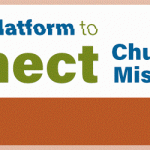 Last week, I took part in a pre-conference preview of Lausanne III, or should I say Capetown 2010. Here’s a random list of my impressions, in no particular order:
Last week, I took part in a pre-conference preview of Lausanne III, or should I say Capetown 2010. Here’s a random list of my impressions, in no particular order:
*** A flair for the “Egalitair” — It seemed the Lausanne leadership had somewhere picked up a strong bias against celebrity. We were organized by table groups. At various times through the 3-day meeting, I’d be sitting with the CEO of the largest missionary-sending agency in the world on my left, and a new Christian on my right. The guy on my right would ask a question like, “This whole idea of sending missionaries who are really business people… It just seems to make a lot more sense. That way, the whole thing is basically free, right?” The guy on my left would raise his eyebrows just a tad, bite his tongue [my impression] and hold back his explanation that “business as missions” doesn’t necessarily mean “missions on the cheap.” The key platform topic previewer — the person who pretty much got more platform time than anyone else — was a 35-year-old American-born Asian female. A celebrated graying Ph.D. author would get 6 minutes, then we’d have one hour at our tables to talk about it. Now don’t get me wrong — I like participation. But when I sat at a table with veterans, I couldn’t help but feel lucky. When I sat at a table with novices, I couldn’t help but feel a bit slighted. When the 4000 delegates come to Capetown, this won’t be your daddy’s consultation. The question is — will the folks at the novice table get the same bang for their buck as the folks at the table full of veterans? I guess that depends on your definition of “consultation.”
Next BackPage, we’ll preview the 6 main themes.












What is your definition of Egalitair? Does it relate to women’s issues? Celebrity? Education? Money? Years of walk with the Lord: “novice” or not?
Hi Shirley. What I mean is — there was/is seemingly an intentional decision to portray every delegate as equal — in that they all have equal voice sitting around these conversation tables. There’s nothing wrong with that, per se. My point is just that, to me, some participants might have more to say about a particular issue because of their experience dealing with that issue. In those cases, the folks sitting at their tables kinda have a ‘let up’ on those sitting at a table in which no one has every addressed a particular issue previously. Can you relate?
I agree that experienced people need to be heard, seemingly giving that table a “leg (?) up.” However, over three days, I would think that tables would be balanced with experience and non-experience. Why would a CEO bite his lip, unless the novice were arrogant? In that case, couldn’t you, Doug, facillitate balanced communication? Personally, I am energized by novices and educated by the experienced. Being 67 (and a believer for 58), a woman, a professional counselor, and a second-career missionary to Russia, I have experienced Un-Egalitair all too often. I applaud the potential of “every delegate, a voice.” The novice will learn from you!
Hi Shirley. Keep in mind… the table numbers were, for the most part, assigned. So — unless we wanted to buck the system — 3 days or 30 days… it wouldn’t matter. But I admit… you raise a good point that, for whatever reason, hadn’t occurred to me: that someone at the table might be wanting to learn from *me*. :-) I still hold, however, that there are certain subjects… especially the technical ones… in which certain participants would have more to say – and *deeper* conceptual knowledge – than a novice to the subject. Let’s see if I can make it practical. Let’s say you went to a workshop and they assigned table numbers to you and 75% of the workshop consisted of interaction at tables. You look at the table next to you and you notice 1/2 of the participants are speaking Russian, and the other half are the authors of books about Russia you either already have or you wish you did. Then suppose you glance back at your own table and realize — this is where I’m going to live for my workshop… and suppose 6 out of the 8 have never been out of the USA before and the 7th has never been to Russia. I guess my point is… sure it might be fun to hear each other talk. But at the end of the day, for me at least, I wonder if the goal ought to be to exchange? … or to learn. If it’s the latter, create a panel discussion with the 4 Russian speakers, then give us Q&A time with them, then a break, then create a panel with the 4 authors of Russian resources, then give us Q&A with them. See what I mean?
In your original Post, it wasn’t clear to me that tables remained the same for three days (“at various times . . . “) and that there wasn’t a variety of methods. However, you were Back-Paging, not expositing, so you were limited in your editorial. If the organizers had used a variety of methods and table compositions — these approaches may have made a difference in the Consultation and put a different spin on your Post. With these two additional points, which change my understanding of your Post, spaciba and dos vidanya. Do you know what I mean, and can you relate? As the Russians would say, “Bravo” for Brigada.
Well, to be fair :-), the tables did change twice. So you raise a good point. However, I still noticed… for example… during the session that dealt with unreached peoples, at one table there were 3 worldwide *experts* on researching unreached peoples. At the next table over, they weren’t even staying on topic. When I asked how their discussion went, they said, “None of us knew anything about the topic.” So even though they played “upset the apple cart” a time or two, it didn’t seem to help matters much. I think it’s just my bias toward — let’s invest *more* time in listening to the experts first, then let’s have some kind of modern-day tech version of good ole fashion Q&A with them for another large portion of the session. If, after all that, we still have time for table groups for applications, let’s do so, knowing full well that some tables will need a bit more guidance than others in how to proceed forward. Can you identify?
Love the Russian. And thanks for the encouragement.
Can I identify? With a bias? Probably . . . ;)